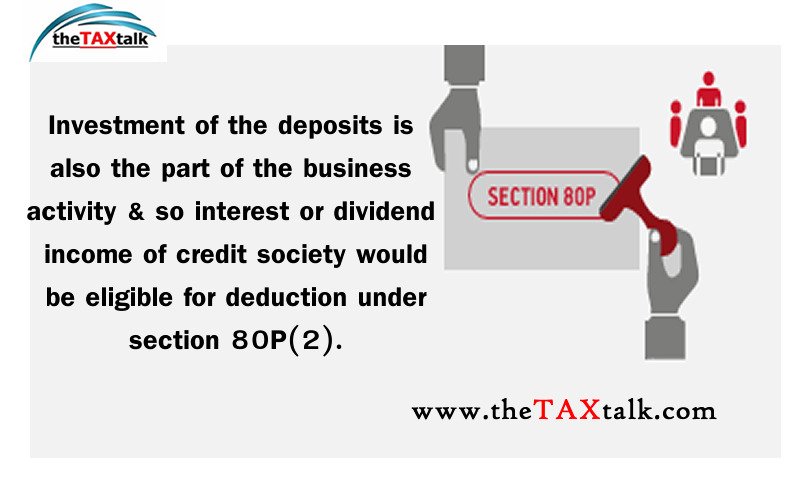![]()
Investment of the deposits is also the part of the business activity & so interest or dividend income of credit society would be eligible for deduction under section 80P(2).
Short Overview Where investment of deposits accepted from members or surplus funds was part of the banking/credit business of assessee-society; the investment of surplus amount in mutual funds by the assessee would be said to be related to its business activity and hence, the interest/dividend income earned by the assessee from such investment, would be eligible for deduction under section 80P(2).
Assessee-society was carrying on business of banking and providing credit facilities to its members and also taking deposits from its farmer members. It invested certain surplus amount in mutual funds and thereby earned dividend income from those mutual funds. AO observed that the assessee was not entitled to exemption under section 80P(2) in respect of the said dividend income.
It Is held that In case of a cooperative society engaged in carrying on business of banking or providing credit facilities to its members, the whole of the amount of profits of business attributable to any or more of such activities as mentioned in section 80P(2), are exempt from taxation. Admittedly, assessee-society was carrying on business of banking and providing credit facilities to its members and also taking deposits from its farmer members, thus, accepting deposits on interest was one of its activities. In business of banking or credit facilities, not only accepting deposits but also investment of the deposits is also the part of the business activity of such an entity. Therefore, to invest the deposits accepted from members or surplus funds available with it, was part of the banking/credit business of the assessee. Accordingly, the investment of surplus amount in mutual funds by the assessee would be said to be related to its business activity and hence, the interest/dividend income earned by the assessee from such investment, would be eligible for deduction under section 80P(2).
Decision: In assessee s favour
IN THE ITAT, KOLKATA BENCH
SANJAY GARG, J.M.
Deorah Nahala Baikanthapur Skus Ltd. v. ITO
I.T.A. No.2484/Kol/2018
8 July, 2021
Appellant by: P. Sarkar, Advocate
Respondent by: Jayanta Khanra, JCIT, DR
ORDER

